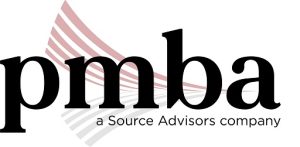The sales tax implications for online and digital advertisers have come under scrutiny in several states. Sales tax auditors have contested the services provided by advertisers as possibly being taxable services under different sales tax regulations. The digital landscape for advertisers has exponentially grown and developed over the past two decades, and in continuing to do so, has put a spotlight on states seeking to impose sales tax on this continually evolving world.
Is Cost-per-Action an Information Service?
States have been able to challenge online advertisers by classifying their services into distinct taxable categories. Oftentimes, services provided by advertisers are considered “professional or non-enumerated non-services,” which many states would classify as non-taxable for sales tax.

However, commonly used digital marketing pricing models such as click-per-action, cost-per-action or pay-per-acquisition, may have information services implications. While each state will have its own definition of what constitutes information services, broadly speaking, it is the collection and compilation of information and furnishing reports thereof.
Digital marketers will need to ask themselves if the services they are purchasing or selling could potentially cross this line. Selling leads with information on the acquisitions from successful conversions may be considered a taxable service in some states, especially in states with broad definitions of information services.
Sales Tax on SaaS
The tools offered by digital advertisers to their clients often come in the form of accessing an online portal to view their advertising campaigns or manage them. This access may seem just to be an auxiliary service, a small addition to the core advertising services rendered.
When this online access comes with a user or license fee, it enters into the realm of software-as-a-service (“SaaS”). SaaS is another ever-evolving sales tax category, with many states not having a solid definition of what makes software SaaS. Due to this, states have challenged the taxability of not only online advertisers, but many in other industries as well who offer an online portal with a license or user fee.
Communications Tax

Digital marketing can take on many forms, but a strategy we see often employed are text messages (“SMS”) sent to consumers. Communications tax is multilayered and complicated, much more so than sales tax. Simply deploying an SMS advertising model without due diligence on proper taxation can lead to scrutiny from states seeking to impose tax on advertising businesses.
Sales Tax on Physical Media
Outside of the digital and online advertising world, the direct mail model is also scrutinized for sales tax implications. Now more than ever with the advent of Wayfair and economic nexus, where you deliver your advertising materials matters. Nexus requirements can be a challenge to navigate. With businesses creating nexus in states they never thought of, direct mailing for advertisers needs to be examined closely for possible sales taxability.
If you are a digital marketer and are not sure if your services can be taxable, reach out to us for a complimentary consultation.

